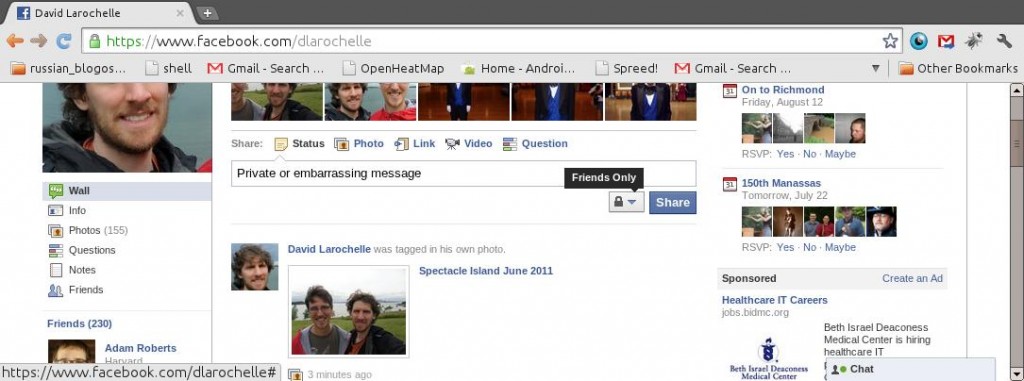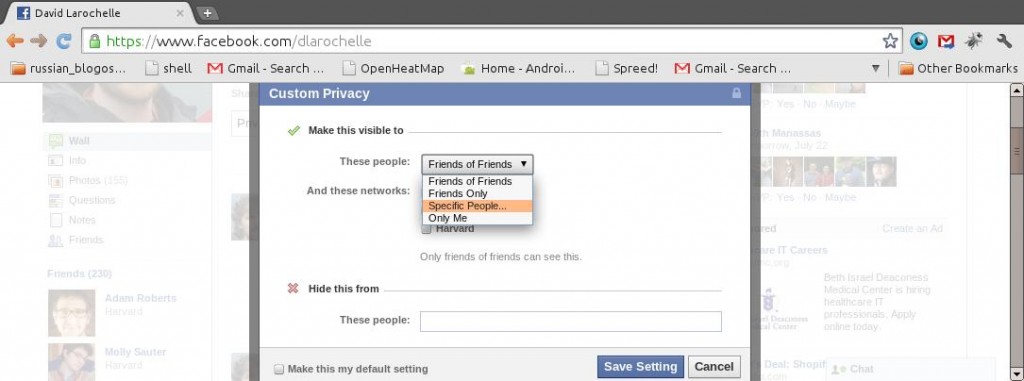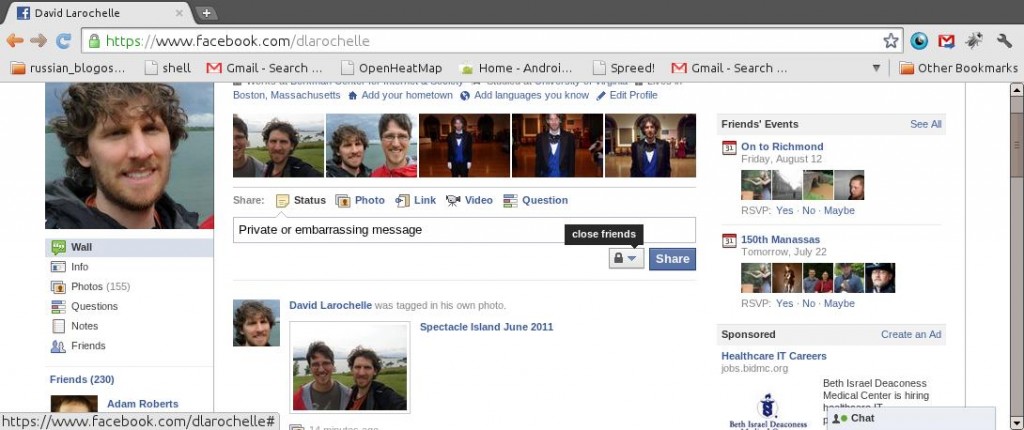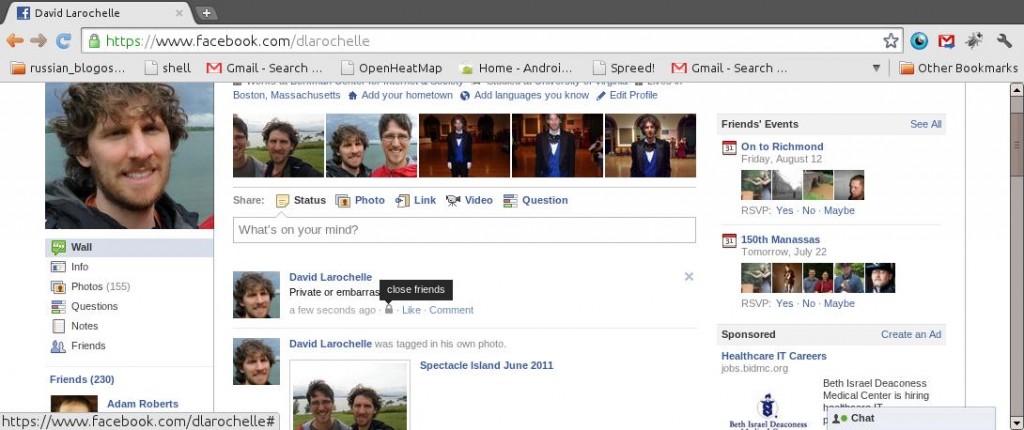The Internet and the Commerce Clause through the Prism of the Federal Kidnapping Act
Michele Martinez Campbell, Assistant Professor of Law at Vermont Law School
This is my attempt live blog a talk that Michel Martinez Campbell gave at the Berkman Center today. More details on the talk are available here: (http://cyber.law.harvard.edu/events/luncheon/2011/07/campbell)
Warning: I’m live blogging and getting things wrong. Also I’m not a lawyer.
Many crimes have both federal and state law analogues.Prior to 2006 crossing state borders was necessary for there to be a federal kidnapping crime. This changed with the Adam Walsh Child Protection and Safety Act of 2006. After this act passed the use of the Internet in a kidnapping can transform it from a state to a federal crime.
Campbell argued that this expansion of federal jurisdiction though controversial is appropriate.
Preamble to the Adam Walsh Child Protection and Safety Act of 2006 (Pub. L. No. 109-248, 120 Stat. 587) states that it’s:
“An Act to protect children from sexual exploitation and violent crime [and] … to promote Internet safety.”
It amended the Federal Kidnapping Act (18 U.s.c. 1201(a) ) The constitutionality of this amendment has been challenged based on the commerce clause. The commerce clause states that:
“The congress shall have the power… To regulate Commerce with foreign Nations, and among the several States, and with the Indian Tribes…”
Historically courts have given the federal governement broad leway with application of the commerce clause but this changed in the early 1990s with US vs. Lopez
Lopez established 3 categories of allowable regulation based on the commerce clause
“first, congress may regulate the use of the channels of interstate commerce.”
“second, Congress is empowered to regulate and protect the instrumentalities of interstate commerce .. even though the threat may come only from intrastate activities.:
“Third, Congress’ commerce authority includes the power to regulate those activities having a substantial relation to interstate commerce.”
Currently federalists and state’s rights advocates argue that the economic / noneconomic distinction is the most important test.
Campbell argued that the federalization of kidnapping within this statute is appropriate both as a constitutional matter and as a mater of Internet and law enforcement policy
Among her legal arguments, Campbell pointed out that a number of courts of appeals have held that the Internet is a commerce facility. She also discussed American Booksellers Foundation Vs. Dean, 342 f. 3d 96, 104 (2d Cir. 2003). In that case the court found in was not okay for Vermont to regulate the Internet by banning transmission of pornographic images.
Campbell’s the policy argument is that although these crimes could be addressed at the state level it makes more sense to address them at the federal level. Federal investigators have experience with electronic investigation and a great sensitivity to 4th amendment issues.
Q.) Doesn’t this federalize every kidnapping?
A.) The Internet has to be used in furtherance of the crime. Calling in a ransom demand over the telephone would be enough to satisfy the commerce clause requirements but ordering a pizza during a kidnapping would not be.
Q.) Isn’t the federal government better at prosecating every crime? Shouldn’t the states just be better equiped?
A.) There are many crimes for which the state is equal or better at prosecuting. e.i. local prosecution is adequate or better. Improving state resources is expensive. This is only a small slice of crimes.
Phil Malone: Q.) I wonder about the premise that this is a small slice of crimes. Internet and cell phones are used everwhere. How do we draw the line?
A.That’s a big question. The dominant commerce clause arguments could be applied in lots of places. However, anonymous communication over the Internet is more specific to kidnappings.
Phil Malone: Shouldn’t the statute be child specific?
A. It’s true that the statute has been applied to adult kidnappings.
Q.) Ron Newman: What if the crime had been committed 30 years ago when telephone calls never travelled outside the state?
A.) The phone has been held to be inherently an interstate commerce channel.
Q.) What if a kidnapping occurs entirely within a state but involves an interstate highway? Isn’t the highway also an interstate commerce channel?
A.) That wouldn’t be enough for federal jurisdiction.
Oliver Goodenough: Q.)Ideally how would you redraw this statute? Where should the boundaries be?
A.) You need to trust in the system to shake these things out. Prosecurial discretion and the courts are also a check. Juries are required to find that the Internet and telecommunications facilities are used in the commission of the crime of central. More than just in incidental use of the technology.
Only 3 reported cases on it to date.
Q.) What about parental kidnapping?
A.) That’s a separate statute.
Q.) This is familial abuse case.
A.) Yes.
Q.) How common is it to federally prosecute for attempt or conspiracy if the Internet is used?
A.) This statute has not been used that way as far as I know but there are other statues where attempt is important.









